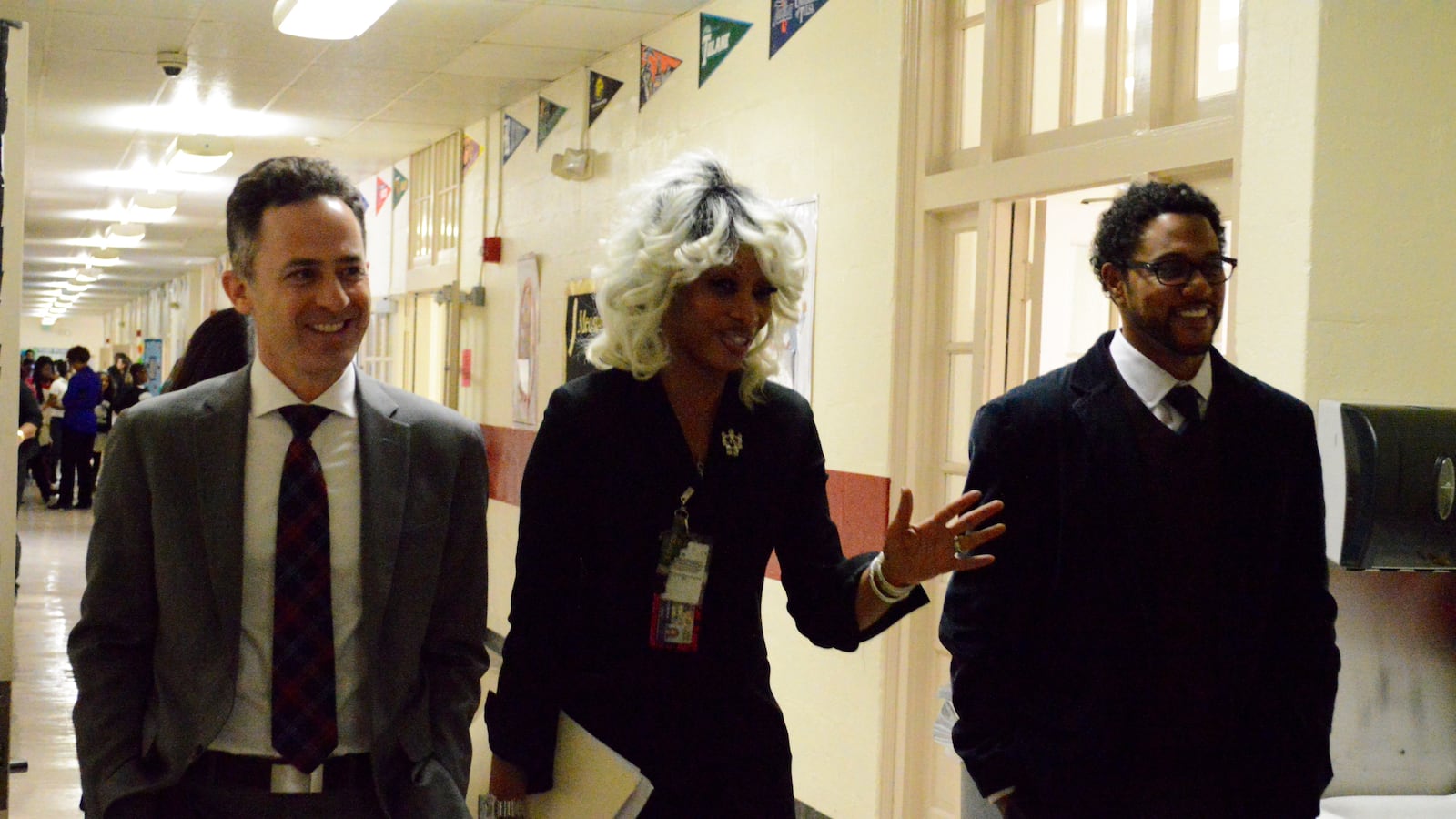The mounting success of Shelby County Schools’ Innovation Zone is attracting national attention from other school districts exploring initiatives that could improve their own low-performing schools.
Administrators with the school turnaround program on Wednesday hosted representatives of District of Columbia Public Schools, one of the nation’s most troubled school systems which, like Memphis, serves a large population of students from low-income families.
The D.C. officials were the fifth contingent of educators to tour the iZone, where most schools saw gains in math and science on the state’s TCAP exam last year.
Other visitors have included school leaders from Detroit, Knoxville and Oakland, Ca., as well as the Aspen Institute, a Washington-based educational and policy studies organization.
“People are wanting to look at our strategies in action,” said Sharon Griffin, the iZone’s regional superintendent. “All of our success on paper is one thing, but when you actually come in, you can talk to teachers and a central office-level staff (person) about not only our successes, but our challenges as well.”
The iZone’s work was highlighted in a December report by Vanderbilt University tracking school improvement efforts in Memphis. The researchers said iZone schools are having “positive, statistically significant, and substantively meaningful effects on student achievement across all subjects.”
Griffin welcomes attention from other school districts facing similar challenges. “It’s a great way for us to bounce ideas off one another,” she said.
Created in 2010, the iZone gives administrators of low-performing schools the autonomy to institute intensive turnaround efforts such as hiring and firing staff, overhauling curriculums, awarding bonuses to teachers, and adding time to the school day.
Eighteen Memphis schools have been absorbed into Shelby County Schools’ iZone, 17 of which have seen positive gains, including seven schools that are no longer on the state’s list of the bottom 5 percent of schools. Three more Memphis schools are scheduled to join the iZone next school year.
Griffin attributes much of the iZone’s success to having the autonomy to handpick staff and alter strategies without waiting for data to tell them what they already know — that something isn’t working.
Sarah Lee, a D.C. district official on Wednesday’s tour, said information gathered from Memphis’ iZone will help school leaders determine next steps in the nation’s capital, where struggling schools have had stagnant or incremental academic growth.

“We’re designing our turnaround work right now, so everything is open to discussion,” she said. “It could be that we implement some of the best practices, or it could be that we follow the structuring of schools similar to the iZone clusters.”
D.C. Schools Chancellor Kaya Henderson has sought the authority to use charter schools as a school turnaround mechanism and to have flexibilities to extend the school day and initiate other significant interventions. The iZone model does not include charter networks but does provide more autonomy for school leaders. In Memphis, the iZone has been a less confrontational turnaround approach than charter schools, which have been the primary intervention vehicle of the other major turnaround program in Memphis, Tennessee’s Achievement School District. The iZone also has the benefit of not ceding enrollment and funding to charters, which make up a growing share of D.C. schools
Lee said her team has searched the nation for best school improvement practices and was led to Memphis by the Vanderbilt study, as well as similar challenges faced by both Shelby County Schools and D.C. Public Schools.
“I think we have similar student demographics,” Lee said. “A lot of the challenges that Dr. Griffin talked about are not surprising to us; its a familiar story for us.”

